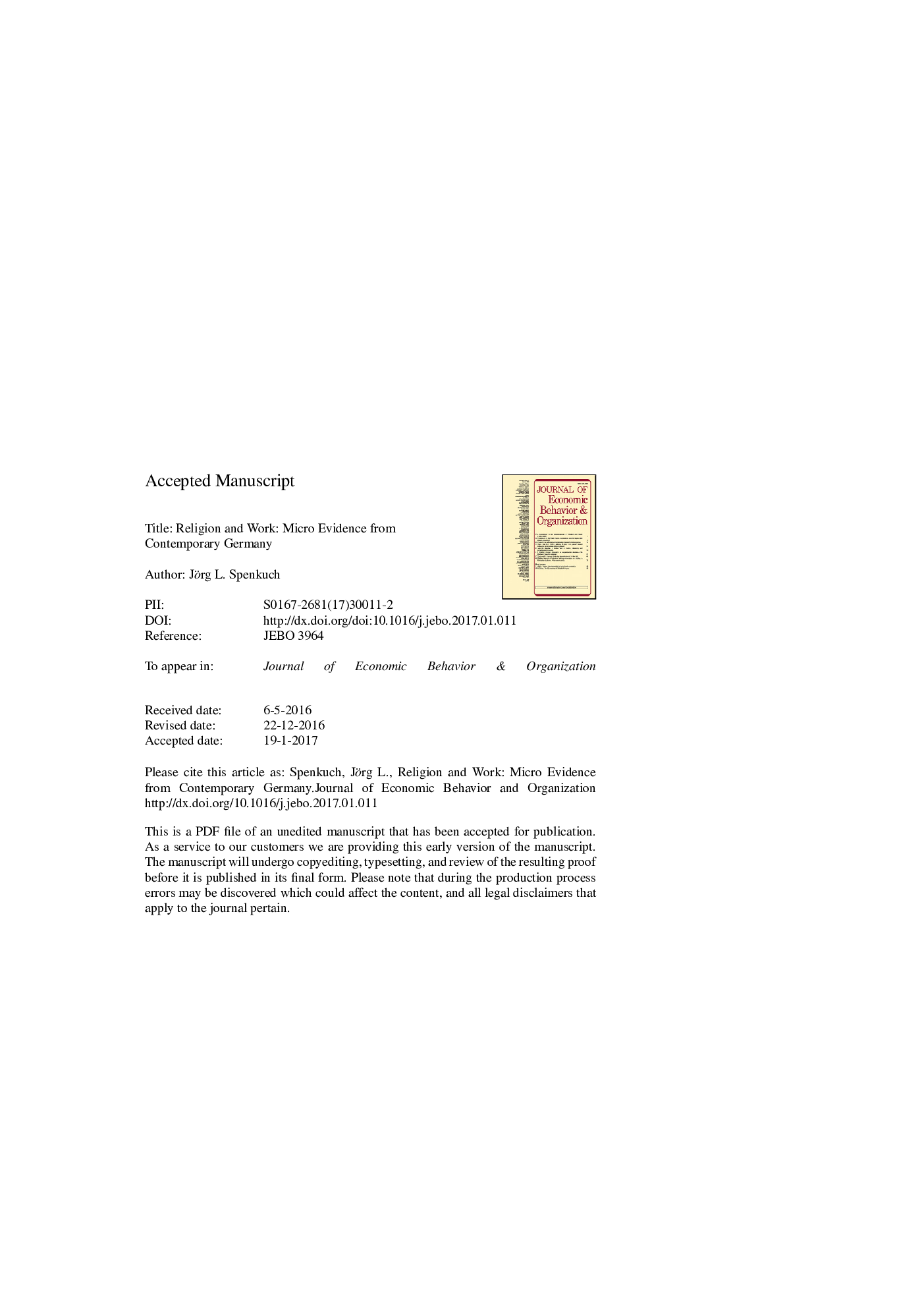| Article ID | Journal | Published Year | Pages | File Type |
|---|---|---|---|---|
| 5034591 | Journal of Economic Behavior & Organization | 2017 | 53 Pages |
Abstract
Using micro data from contemporary Germany, this paper studies the connection between Protestantism and modern-day labor market outcomes. To address the endogeneity in self-declared religion, I exploit a provision in a sixteenth-century peace treaty, which determined the geographic distribution of Catholics and Protestants. Reduced form and instrumental variable estimates provide no evidence of an effect of Protestantism on hourly wages. However, relative to their Catholic counterparts, Protestants do appear to work longer hours. The patterns in the data are difficult to reconcile with explanations based on institutional factors or religious differences in human capital acquisition. Religious differences in individuals' values, however, can account for most of the estimated effects.
Related Topics
Social Sciences and Humanities
Economics, Econometrics and Finance
Economics and Econometrics
Authors
Jörg L. Spenkuch,
